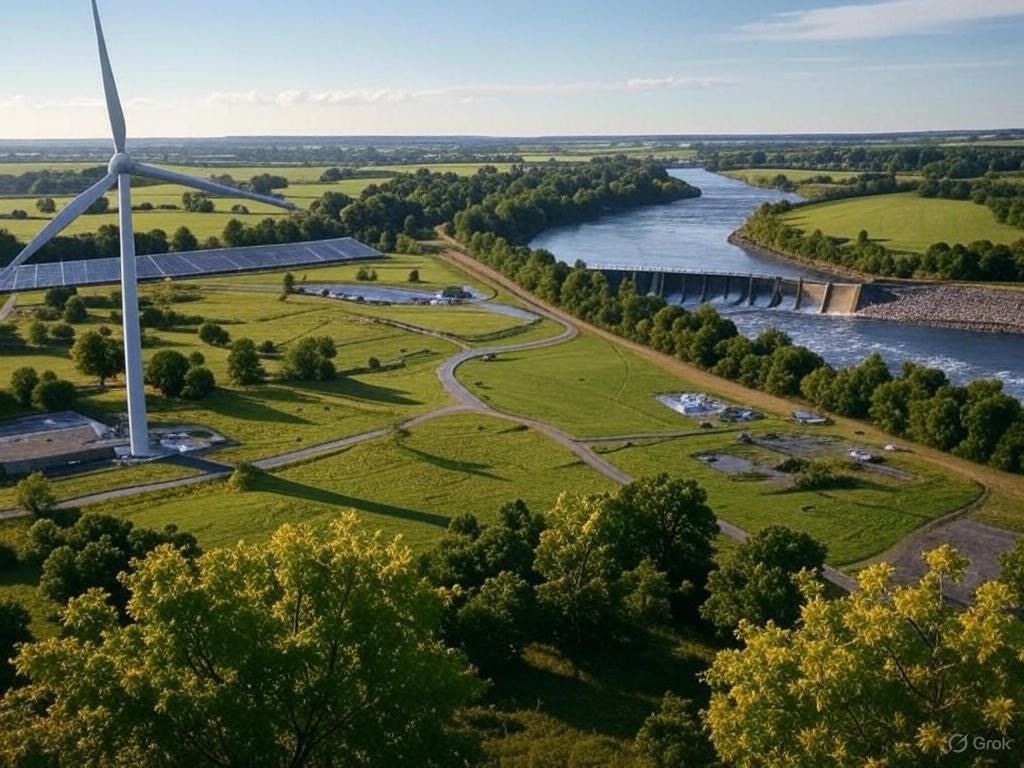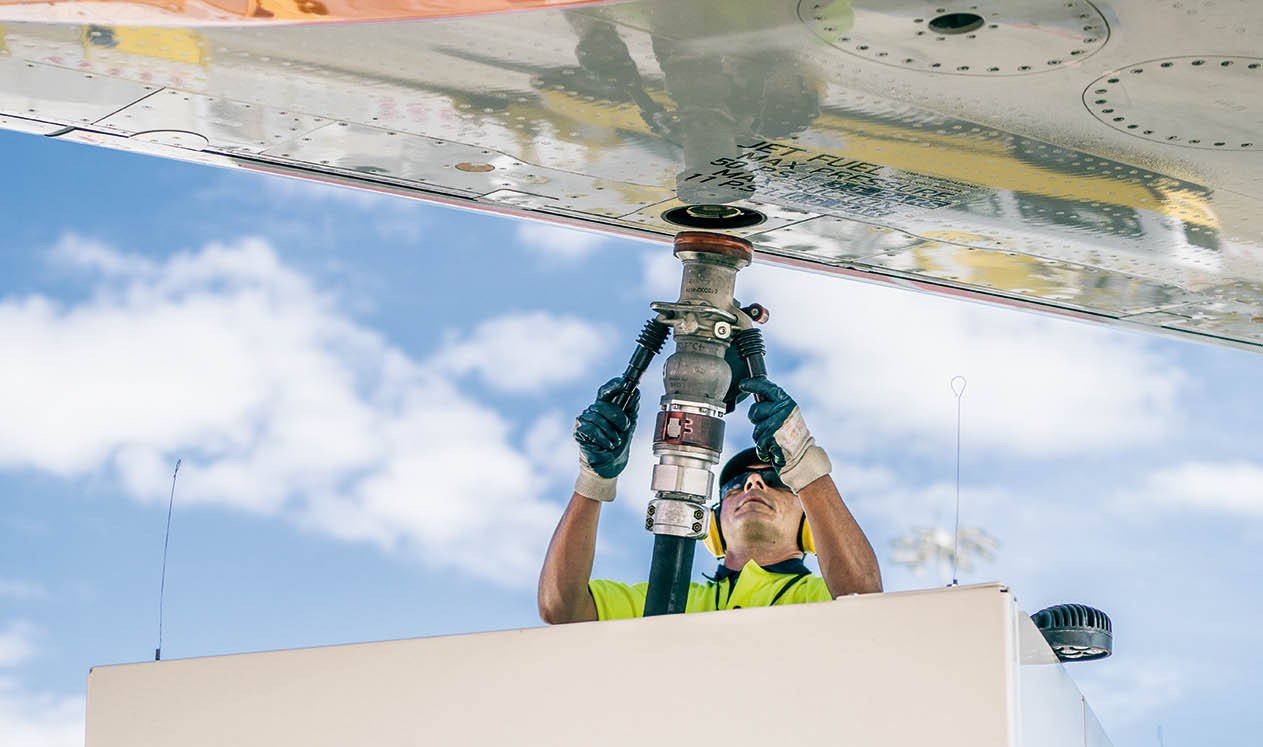Given the elevated instability of international energy markets since the war in Ukraine began, coupled with soaring energy prices in recent months, many households and businesses are finding it hard to cope with their daily expenses. And so it comes as no surprise that many people in Spain are deciding to change the way they consume energy by looking for more sustainable and economical energy models.
This involves solutions based on renewable energy sources and energy efficiency, which are not only key to moving steadily towards the energy transition and fighting climate change, but that also offer a way to save money.
Investing in renewable energy solutions is now more affordable thanks to the government subsidies now available.
Energy transition subsidies
Redoing your home's insulation, installing a solar self-consumption system in an office or home, or switching to electric vehicles on the national scale all yield considerable financial benefits over time. However, they also entail a series of initial costs when it comes to construction, installation, or the purchasing of system themselves, which must first be overcome.
To facilitate these kinds of renewable projects so that setup costs do not become a hurdle for some, the Spanish government is offering a series of grants and subsidies to drive Spain's energy transition. Financed by the NextGenerationEU fund and as part of Spain's Plan for Recovery, Transformation, and Resilience, this public funding consists of different categories depending on who is requesting the aid (households, businesses, nonprofits, or public bodies) and the scope (energy efficiency, transition to renewables, or sustainable mobility).
Here we tell you about some of the most interesting subsidies currently being offered in this regard and their main features.
The Spanish government is offering households and businesses a range of subsidies for renewable energy, energy efficiency, and sustainable mobility projects.
Energy efficiency
One of the main types of subsidies to be found are those related to improving energy efficiency in the residential sector, including individual households, buildings, and business or state-owned properties. The aim of this is to achieve a more sustainable energy consumption and savings on monthly bills.
- Spain's 2022–2025 State Housing Plan. This program deals with funding measures to reduce energy demand in homes and buildings, in terms of both heating and cooling, reducing the consumption of non-renewable primary energy and replacing exterior elements (thermal insulation, changing windows). Grants will cover 40% of procedure costs, with a limit of €3,000 per home. An essential requirement for this is that the home in question must be a primary and permanent residence.
- PREE 5000. Energy rehabilitation of buildings in demographically challenged municipalities. This subsidy is aimed at small towns with a population no greater than 5,000 inhabitants. It includes changing a building's thermal enclosure, replacing fossil-based heating systems for renewable energy sources and improving lighting efficiency. Changes to thermal enclosures are subsidized for the amount of 50%–40%, while changes to heating systems receive 40%–30% and lighting improvements get 20%. Applications are being accepted until December 31st, 2023.
Transitioning to renewable energies
Another important subsidy goes to support the installation of energy systems based on renewable sources, such as solar, wind, and geothermal energy. The main source of public funding found in this area consists of grants for self-consumption and storage using renewable energy sources, as well as the implementation of renewable thermal systems in the residential sector (RD 477/2021 PRTR). This program is focused on installing renewable self-consumption systems, both electric and thermal, and consists of six sub-programs with different incentives.
Incentive programs 1, 2, and 3 are focused on the business sector:
- Program 1: Installing self-consumption systems for the service sector.
- Program 2: Installing self-consumption systems for other economic productive sectors.
- Program 3: Integrating storage in existing self-consumption systems in all sectors.
With regard to these first three programs, the subsidies will be calculated by applying a percentage to the total costs incurred by the user during the process, such as materials and labor. Depending on the amount of those costs and the power installed, the user may receive a certain percentage of funding, as detailed in the following table.
| Incentive programs | Percentage of aid over eligible cost | |
|---|---|---|
| 1 and 2 | Porcentaje de ayuda sobre coste subvencionable | Photovoltaic self-consumption system: €460–€1,188/kWp (15 – 45%) |
| Self-consumption wind turbine: €1,070 – €4,723/kW (20 – 50%) | ||
| Integrating self-consumption storage: €200–€700/kWh (45 – 65%) | ||
| 3 | Porcentaje de ayuda sobre coste subvencionable | Integrating self-consumption storage into existing systems: €200–€700/kWh (45 – 65%) |
The programs relevant to the residential sector are 4, 5, and 6:
- Program 4: Installing self-consumption systems in the residential sector, public administration, and nonprofits.
- Program 5: Integrating storage into existing self-consumption systems in the residential sector, public administration, and nonprofits.
- Program 6: Installing renewable thermal systems in the residential sector.
The aid granted through these incentive programs consists of set amounts that are calculated bearing in mind the installed power, but not the costs. This way, a specific amount is funded within a set budget bracket, regardless of the costs incurred by the user.
| Incentive programs | Target sector | "Units" partially covering eligible costs |
|---|---|---|
| 4 | Residential sector | Photovoltaic self-consumption system: €300–€600/kWp |
| Self-consumption wind turbine: €650–€2,900/Kw | ||
| Integrating self-consumption storage: €140–€490/kWh | ||
| Public administrations and voluntary sector | Photovoltaic self-consumption system: €500–€1,000/kWp | |
| Self-consumption wind turbine: €1,150–€4,100/Kw | ||
| Self-consumption storage: €140–€490/kWh | ||
| 5 | -- | Self-consumption storage added to existing systems: €140–€490/kWh |
| 6 | Residential sector | Aerothermal heating systems: €500/kW (€3,000/home) |
| Instalación solar térmica: Solar thermal systems: €450–€900/kW (€550–€1,800/home) | ||
| Biomass: €250/kW (€2,500–€3,000/home) | ||
| Geothermal or hydrothermal systems: €1,600–€2,250/kW (€9,000–€13,500/home) | ||
| Public housing and nonprofits | Aerothermal heating systems: €650/kW (€3,900/home) | |
| Solar thermal systems: €650 – €950/kW (€820 – € 1,850/home) | ||
| Biomass: €350/kW (€3,500–€4,200/home) | ||
| Geothermal or hydrothermal systems: €1,700–€2,250/kW (€9,550–€13,500/home) |
Achieving sustainable mobility
One of the most important pillars of the energy transition is everything related to mobility and the emission of greenhouse gases (GHGs), such as CO2, into the atmosphere. The Spanish government is also offering several grants that seek to support this change in how we move around both for individuals and for companies, placing a particular focus on expanding electric vehicle fleets and fleet renewal.
The MOVES III Program is one such scheme, which seeks to incentivize the purchase of electric vehicles. Applications are being accepted until December 31st, 2023, and are divided into two types. .
-
The first is for purchasing plug-in and fuel cell electric vehicles, with grants of up to €7,000 for commercial vehicles and €4,500 for passenger cars.
- The second is for installing charging infrastructures, with funding of 70% for individuals and the self-employed, and 35% for businesses and public bodies.
Subsidies for businesses
While many subsidies and schemes are available to both individual users and businesses, some specifically target the private sector.
- Subsidy program for energy efficiency measures in farming operations. This involves updating installations of hot air generators, air conditioning, lighting, pumps, and other energy-consuming equipment, as well as replacing energy in thermal systems for renewable energies.
- Energy efficiency in SMEs and large industrial companies. Spain's autonomous communities are in charge of announcing and overseeing these grants, which are focused on improving efficiency, with each community setting their own amounts and conditions.
- Incentive program for unique projects by energy communities (CE IMPLEMENTA). Focused on the presentation of original pilot projects for renewable energy production, efficiency and sustainable mobility. It is divided into two phases, depending on the project’s size and level of investment.
- RD 451/2022 Direct awarding of subsidies for the Balearic Islands and the Canary Islands. This responds to the specific challenges that the islands are facing with regard to energy systems, by developing new electricity generation systems, unique projects, and renewable energy strategies.
- To implement renewable thermal systems in different sectors of the economy (RD 1124/2021. PRTR). This is divided into two different types of incentives. Incentive Program 1 is for renewable thermal systems in industry, farming, services, and other economic sectors. Incentive Program 2 is aimed at public sector infrastructures, establishments, and non-residential buildings.
Rebates and deductions
In addition to these state subsidies, there is also a series of rebates and deductions designed to make energy transition projects even more cost-effective.
At the national level, income tax deductions may be applied (called "IRPF" in Spain) for works aimed at improving energy efficiency in homes, which includes installing solar panels and other renewable systems, and ranges between 20% and 60%.
Rebates on Property Tax (called "IBI" in Spain) and Spain's Construction, Installation and Works Tax ("ICIO") are also available. These taxes depend on the council in question, and so the amount to be paid back will depend on what each of them has established in that regard.




